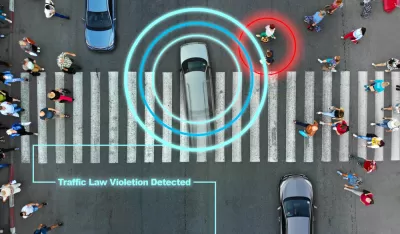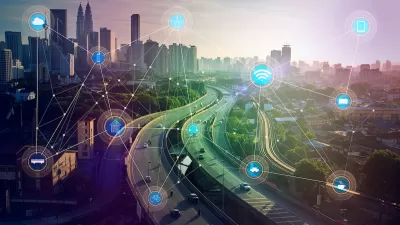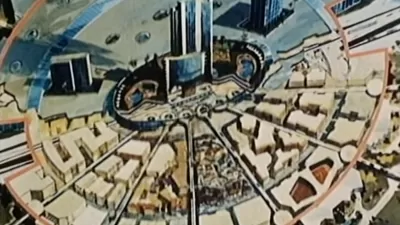The glamour of digital technology can obscure the hard work of building healthy, sustainable cities.

Writing in Technology Review, Riad Meddeb, interim director of the UNDP Global Centre for Technology, Innovation, and Sustainable Development, cautions that an overemphasis on “smart city” technology “risks a transactional—and limiting—approach to city improvement, focusing on immediate returns on investment or achievements that can be distilled into KPIs.”
A focus on building “smart cities” risks turning cities into technology projects. We talk about “users” rather than people. Monthly and “daily active” numbers instead of residents. Stakeholders and subscribers instead of citizens.
According to Meddeb, “Truly smart cities recognize the ambiguity of lives and livelihoods, and they are driven by outcomes beyond the implementation of ‘solutions.’ They are defined by their residents’ talents, relationships, and sense of ownership—not by the technology that is deployed there.”
Meddeb calls on cities to look beyond the flashy appeal of technology and explore the uses of digital technology while also doing the less glamorous work of tackling urgent problems like climate change, inequality, and pollution. For Meddeb, city leaders and policymakers must “move beyond the sales pitches and explore how our cities can be true platforms—not just technological ones—for inclusive and sustainable development.”
FULL STORY: We need smarter cities, not “smart cities”

Alabama: Trump Terminates Settlements for Black Communities Harmed By Raw Sewage
Trump deemed the landmark civil rights agreement “illegal DEI and environmental justice policy.”

Study: Maui’s Plan to Convert Vacation Rentals to Long-Term Housing Could Cause Nearly $1 Billion Economic Loss
The plan would reduce visitor accommodation by 25% resulting in 1,900 jobs lost.

Planetizen Federal Action Tracker
A weekly monitor of how Trump’s orders and actions are impacting planners and planning in America.

Study Links Covid and Poor Driving
The effects of the virus, including ‘brain fog,’ can make driving more difficult and dangerous.

Waymo Gets Permission to Map SF’s Market Street
If allowed to operate on the traffic-restricted street, Waymo’s autonomous taxis would have a leg up over ride-hailing competitors — and counter the city’s efforts to grow bike and pedestrian on the thoroughfare.

Parklet Symposium Highlights the Success of Shared Spaces
Parklets got a boost during the Covid-19 pandemic, when the concept was translated to outdoor dining programs that offered restaurants a lifeline during the shutdown.
Urban Design for Planners 1: Software Tools
This six-course series explores essential urban design concepts using open source software and equips planners with the tools they need to participate fully in the urban design process.
Planning for Universal Design
Learn the tools for implementing Universal Design in planning regulations.
Caltrans
Smith Gee Studio
Institute for Housing and Urban Development Studies (IHS)
City of Grandview
Harvard GSD Executive Education
Toledo-Lucas County Plan Commissions
Salt Lake City
NYU Wagner Graduate School of Public Service





























